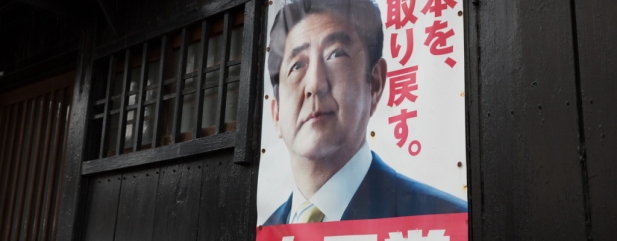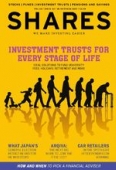Archived article
Please note that tax, investment, pension and ISA rules can change and the information and any views contained in this article may now be inaccurate.
Japanese equities buoyed by Abe's victory

Japanese prime minister Shinzo Abe’s general election victory on 22 October puts him on course to be the longest serving prime minister of Japan in the modern era.
Those who question the wisdom of his ‘Three Arrows’ programme, dubbed Abenomics, in the past will have to get used to it as his victory means that monetary easing looks set to continue.
Abe is likely to once again use massive quantitative easing to hoover up bonds; the Bank of Japan (BoJ) even buys exchange-traded funds to get at this asset class.
His BoJ governor Haruhiko Kuroda will presumably be told it is business as usual. With Abe and his loyal ally in place, a twin attack of monetary and fiscal policy looks certain to continue. For investors, that means exposure to Japan through funds remains an attractive option.
The easy monetary policy has had good success. Japan’s main index, the Nikkei 225 is trading at a two-decade high and has risen 16.5% alone in the last six months.
Neptune Investment Management’s head of Japanese equities Chris Taylor says the Japanese market is still ‘undeniably cheap’.
‘Japanese earnings growth has been surprisingly strong, with both earnings per share and net profits increasing by over 13% and 26% respectively for full year 2016 and the first quarter of 2017, in turn roughly double and triple consensus expectations,’ he adds.
However, there are some doubters regarding the true success of Abenomics.
Michael Stanes, investment director at Heartwood Investment Management, says the prime minister’s achievements have ‘only amounted to coercing the BoJ into bankrolling an ever-rising debt mountain, thereby propping up the stock market rather than reflating the economy’.
This is a reference to the loose monetary policy employed by the BoJ; it owns around 40% of outstanding government debt.
Japan’s debt to GDP rating of 240% is ‘monstrous’ according to Russ Mould, investment director at AJ Bell.
He says that is the highest such figure in the world ‘and it leaves Japan in the less-than-exalted company of such economic problem children as Greece, Jamaica, Lebanon and Italy’.
Steven Andrew, manager of M&G Episode Income Fund (GB00B7FSJ224) which has a 7% allocation to Japanese equities, says ‘genuine fundamental dynamics appear to lie behind recent strength in the Japanese equity market, and it is these, rather than attempts to forecast political and policy developments, which should be the focus of investors’. (DS)
Important information:
These articles are provided by Shares magazine which is published by AJ Bell Media, a part of AJ Bell. Shares is not written by AJ Bell.
Shares is provided for your general information and use and is not a personal recommendation to invest. It is not intended to be relied upon by you in making or not making any investment decisions. The investments referred to in these articles will not be suitable for all investors. If in doubt please seek appropriate independent financial advice.
Investors acting on the information in these articles do so at their own risk and AJ Bell Media and its staff do not accept liability for losses suffered by investors as a result of their investment decisions.

 magazine
magazine









